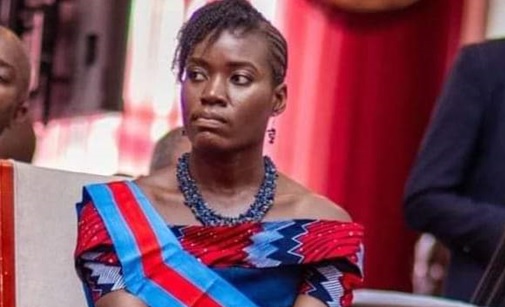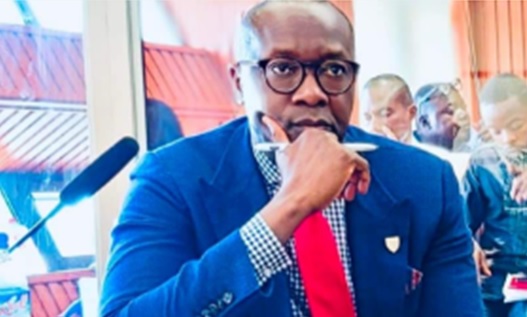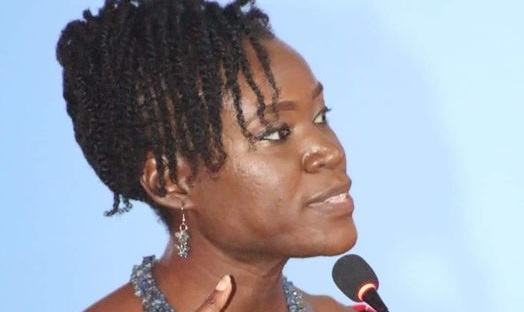MONROVIA – In a strongly worded critique, Liberian journalist Moses Sandy has taken issue with the speech delivered by Dr. Robtel Neajai Pailey during Liberia’s 177th Independence Day celebrations. Sandy described Dr. Pailey’s address as lacking in depth and professionalism, accusing her of making unfounded accusations against the United States. This critique comes amid a backdrop of complex diplomatic relationships, where words carry significant weight and can influence international perceptions.
Dr. Pailey, chosen as this year’s national orator, used her platform to express sharp criticism of the U.S. government. She questioned the validity of the “special relationship” often touted between Liberia and America, suggesting it is more myth than reality. Her remarks challenged the long-standing narrative of dependency, urging Liberia to forge new strategic partnerships based on mutual benefit and equality. This bold stance provoked mixed reactions from the audience, reflecting the sensitive nature of Liberia’s foreign relations.
Sandy’s assessment of Dr. Pailey’s performance was particularly harsh. He characterized her delivery as “loud, unstructured, and poorly researched,” indicating that the speech failed to meet the expectations for such a significant national occasion. According to Sandy, Dr. Pailey’s comments were not only unsupported by evidence but also detrimental to Liberia’s diplomatic standing. He suggested that her approach could strain ties with a crucial international partner, underscoring the potential repercussions of public diplomacy missteps.
One of the most controversial aspects of Dr. Pailey’s speech was her assertion that the United States has historically taken more from Liberia than it has given. She highlighted that the U.S. was one of the last countries to recognize Liberia’s independence, questioning the sincerity of its historical support. These remarks were intended to encourage a reevaluation of Liberia’s international alliances but instead sparked immediate controversy and debate.
The fallout from Dr. Pailey’s speech was swift. Chargé d’Affaires Rodriguez, leading the U.S. delegation, chose to leave the event in response to what was perceived as divisive rhetoric. This action underscored the seriousness with which the U.S. viewed the accusations, reflecting broader concerns about maintaining a positive and collaborative relationship between the two nations.
In a statement released by the U.S. Embassy, the historical ties and shared values between the United States and Liberia were emphasized. The Embassy underscored America’s longstanding contributions to Liberia, highlighting the substantial financial assistance provided annually. The statement also pointed out the numerous American organizations and private citizens dedicated to supporting Liberia’s development, aiming to counter Dr. Pailey’s claims of exploitation and imbalance.
Despite the backlash and the public departure of the U.S. delegation, Dr. Pailey remained unapologetic. She firmly stood by her remarks, asserting her right to voice critical perspectives on international relations. “I owed no one an apology,” she declared, emphasizing her commitment to expressing uncomfortable truths. Dr. Pailey’s stance reflects a broader discourse on sovereignty and the need for transparent, equitable partnerships.
Sandy’s critique has added fuel to an already heated debate, sparking widespread discussion about the nature of Liberia’s international relationships. While some support Dr. Pailey’s call for reevaluation and independence, others fear the potential diplomatic fallout and its impact on Liberia’s future. The controversy highlights the delicate balance required in addressing national interests on the global stage.
The incident has prompted both criticism and support from various quarters, illustrating the polarized nature of the discussion. Advocates for Dr. Pailey’s perspective argue that addressing historical grievances is essential for genuine progress, while critics worry about alienating allies and the potential economic repercussions.
As Dr. Pailey departed for the United Kingdom following the speech, the discourse surrounding her remarks and their implications continues to evolve. Her departure marks a temporary pause in a conversation that is far from over, leaving many to reflect on the balance between diplomatic relations and national sovereignty. The incident serves as a reminder of the power of words and the responsibilities that come with representing a nation on such a significant platform.







